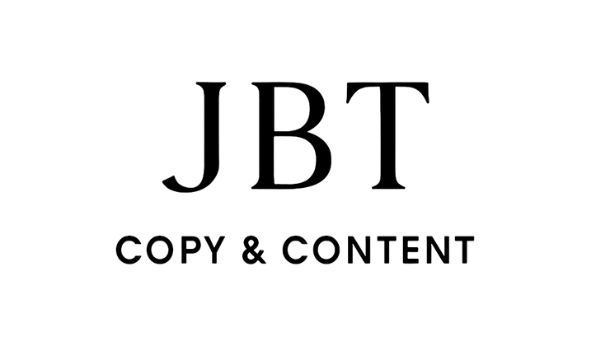How Hotels and Tourism Businesses Can Optimise for AIO (AI Search Optimisation)
AIO for tourism and hotels
Not long ago, most travellers started their journey with a Google search: “cheap hotel Paris”, “best safari Kenya”, “family resort Spain.” Those short, keyword-heavy phrases were the foundation of SEO in travel marketing.
But today, trip planning often begins in a different place. Travellers are asking AI tools like ChatGPT, Gemini, and Perplexity detailed, conversational questions:
“Which boutique hotels in Paris have balconies facing the Eiffel Tower?”
“What eco-lodges in Kenya run on solar power and offer guided safaris?”
This move from keywords to AI-driven, natural-language search is at the heart of AI Optimisation (AIO), and it’s already reshaping how hotels and tourism businesses get discovered.
What Is AIO?
AIO (AI Search Optimisation) is the process of making your content and online presence recognisable, trustworthy, and usable by AI search tools. AI models don’t just pull data from one website, they synthesise answers from across the web. To appear in those answers, your business needs content that is:
Clear and well-structured
Specific to what makes you unique
Credible and authoritative
AIO vs. SEO: What’s the Difference?
SEO and AIO share a lot of principles, but they’re not the same.
SEO is about optimising for Google and other search engines. It focuses heavily on keywords, backlinks, and meta data, with rankings determined by algorithms. Success in SEO often comes from technical optimisation and showing up in snippets or on page one of results.
AIO, on the other hand, is about optimising for AI tools like ChatGPT, Gemini, or Perplexity. Instead of short keywords, it responds to conversational, natural-language queries. What matters most is clear, structured content that highlights credibility, authority, and uniqueness. AI tools pull from a wide range of sources, so the brands that provide trustworthy, detailed information are the ones most likely to be included in their answers.
Put simply: SEO gets you found. AIO gets you chosen.
Why AIO Matters for Hotels and Tourism
Travel decisions are already being shaped by AI. A guest planning a trip might never type into Google, they’ll simply ask ChatGPT “Where should I stay near Disneyland Paris?” or “Best yoga retreats in Spain?”
If your property, tour, or brand doesn’t appear in those answers, you’ve lost visibility before you even had a chance.
Hotels and tourism businesses should care because:
Booking journeys are changing: AI tools are already influencing purchasing decisions.
Trust is built differently: people trust AI to recommend “the best,” not just the top Google result.
Early movers will win: brands that start optimising now will dominate future AI-driven searches.
How to Optimise for AIO in Hospitality & Tourism
1. Highlight Your Unique Selling Points Clearly
AI tools look for specifics. Instead of just “4-star hotel in Berlin,” spell it out:
“Rooftop terrace with panoramic park views”
“Eco-certified safari lodge with solar power and local guides”
Think: What’s the box your audience and travellers want to tick, and does your content clearly show you tick it?
2. Write for Conversational Queries
AI search mirrors human conversation. Use natural, question-based phrasing in your content:
Blog posts: “Where to find the best ski lodges in Switzerland for families”
FAQs: “Does this hotel allow pets?” or “How close are we to the train station?”
The closer your content mirrors the way people ask questions, the more likely it is to appear in AI-generated answers.
3. Build Authority and Credibility
AI tools prioritise reliable sources. Boost your credibility by:
Publishing accurate, up-to-date content
Highlighting awards, sustainability certifications, or partnerships
Securing mentions in trusted travel publications or directories
4. Optimise Your Online Presence Beyond Your Website
AI doesn’t just read your website, it scans across the web. Make sure your:
Google Business Profile is complete and detailed
OTA listings (Booking, Airbnb, Expedia) are accurate and rich in information
Social media showcases your uniqueness consistently
5. Leverage AI Tools in Your Own Strategy
Optimising for AI means also using AI in your workflow.
Test queries in ChatGPT or Gemini: “What are the best boutique hotels in [city]?, see if you appear.
Use AI tools for content ideation and structuring FAQs.
Analyse what answers are given and adjust your copy to fill gaps.
Where to start with your hotel or tourism business
If you’re a hotel or tourism business beginning to think about AIO, the best first step is to look closely at the content you already have. Ask yourself: is it clear, detailed, and written in a way that answers real questions travellers are likely to ask? A blog post full of generic phrases won’t help you, but content that spells out exactly what makes your property or experience unique will.
Once you’ve audited your content, the next step is to identify your “hooks.” These are the features that guests are actually searching for, whether that’s a rooftop view of a city park, an eco-certification, or family-friendly facilities. Make sure those details are visible across your website, booking listings, and social media, so AI tools can easily recognise and surface them.
It’s also worth testing AI queries yourself. Open ChatGPT or Gemini and type in the sort of questions a guest might ask: “Which boutique hotels in [city] are close to the river?” or “What eco-lodges in [region] are best for families?” See if your brand appears, and if not, take note of the gaps in your online presence.
Finally, think about authority. AI tools lean on sources they trust, so your visibility will improve if you strengthen credibility signals, from collecting guest reviews and securing press mentions, to building backlinks and highlighting awards or certifications. Over time, these elements combine to make your business not just visible, but trustworthy enough to be chosen in AI-generated answers.
Here’s to a future where AIO is queen
AIO isn’t about replacing SEO, it’s about building on it.
The hotels and tourism businesses that will win in the next few years are those that understand how travellers are searching now: not just typing keywords into Google, but asking AI tools for tailored recommendations.
By making your content clear, credible, and conversational, you give AI every reason to include you in the answers that matter. And that could mean the difference between being overlooked and being booked.





